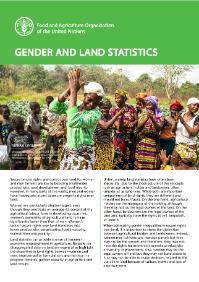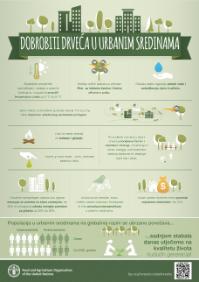Focal point
Location
The Food and Agriculture Organization of the United Nations leads international efforts to defeat hunger. Serving both developed and developing countries, FAO acts as a neutral forum where all nations meet as equals to negotiate agreements and debate policy. FAO is also a source of knowledge and information. We help developing countries and countries in transition modernize and improve agriculture, forestry and fisheries practices and ensure good nutrition for all. Since our founding in 1945, we have focused special attention on developing rural areas, home to 70 percent of the world's poor and hungry people.
Members:
Resources
Displaying 556 - 560 of 5073Increase the use of the Voluntary Guidelines on the Responsible Governance of Tenure among CSOs and Grassroots Organizations_Malawi
The Voluntary Guidelines on the Responsible Governance of Tenure of Land, Fisheries and Forests in the Context of National Food Security (VGGT) set out internationally-accepted principles and standards for responsible practices, providing a framework for governments, the private sector and civil society to use when developing policies and programmes for improving food security.
Corporate Framework to support sustainable peace in the context of Agenda 2030
The objective of this corporate Framework (the ‘Framework’) is to guide the Food and Agriculture Organization of the United Nations (FAO) in carrying out its mandate in its areas of competence and comparative advantage, i.e. food security, nutrition and sustainable agriculture, towards a more deliberate and transformative impact on sustaining peace.
The Gambia and FAO
Since the establishment of the FAO Representation in the Republic of the Gambia in 1978, FAO has provided vital support
to the development of agriculture and natural resource sectors in the country. The Organization has implemented more than120 projects, also facilitating policy formulation and the development of programmes and projects to improve production,productivity, food quality and national technical and institutional capacities. In 2014, the Gambia achieved the MillenniumGender and Land Statistics
Secure tenure rights and control over land for women and men farmers are key to boosting smallholder productivity, rural development and food security. However, in many parts of the world, men and women have inadequate access to secure property rights over land. Women are particularly disadvantaged: even though they constitute on average 43 percent of the agricultural labour force in developing countries, women’s ownership of agricultural land remains significantly lower than that of men.
Dobrobiti drveća u urbanim sredinama
Krošnje velikih stabala su prirodan filter za lebdeće čestice i štetne plinove u zraku. Jedno stablo iz atmosfere godišnje uklanja 150 kg CO2 i time doprinosi ublažavanju klimatskih promjena. Drveće pruža stanište, hranu i zaštitu ostalim biljkama i životinjama te time povećava bioraznolikost u urbanim sredinama. Sadnjom stabala danas utječemo na kvalitetu života budućih generacija!











